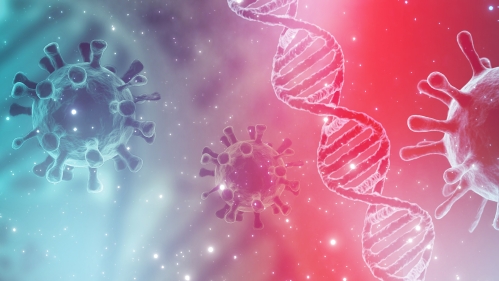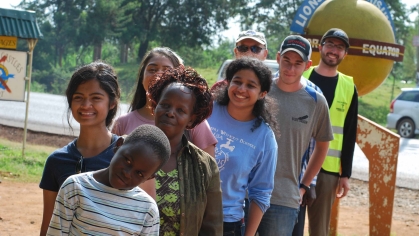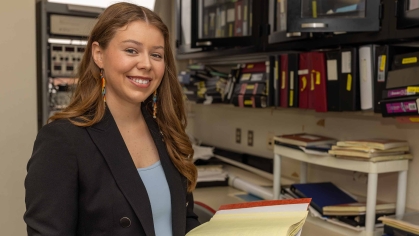Rutgers Students on Winning Nucleate Pitch Showcase Team

Student-led Nucleate is a global organization that aims to empower the next generation of biotechnology leaders, innovators, and entrepreneurs. In May, Team GenePods won both the High Impact Culture Award and the High Performance Award at a Nucleate Activator Final Pitch Showcase.
As Nucleate’s flagship program, Activator seeks to nurture the business acumen skills of budding entrepreneurs in the biotechnology field, to enable them to advance to the funding stages of company development. The teams are mentored as part of structured workshops to prepare a final pitch showcase before a panel of industry leader judges. “There are three team tracks: technology, business, and clinical,” explains GenePods’ co-mentor Hao Lin, a professor in the School of Engineering’s Department of Mechanical and Aerospace Engineering. “The technical team presents technical proposals followed by a matching phase, where the technical team selects teammates from the business and clinical tracks.”
The collaborative six-person GenePods team, according to Lin, included newly minted SoE PhD Emran Lallow, as well as University of Pennsylvania and Drexel University graduate students.
In addition to Lin, the team was mentored by Dr. Joel Maslow of GeneOne Life Science, Inc., and Dr. Neelam Amin of Provenance Bio. Lin describes his role as one of mentoring and overseeing technical and business plan development, while providing critiques and working with the team members on their presentations and pitches.
“Our mission,” Lin explains, “is to provide accessible nucleic-acid vaccines and therapies through our innovative delivery platform, GeneDerm.”
An Inventive DNA Vaccine Delivery System
GeneDerm, the GenePods team’s winning project, is, according to Lin, based on a newly invented platform funded, by both GeneOne Life Science and a Rutgers CCRP2 grant, to deliver DNA vaccines and therapeutics to cells using a technique based on the ancient method of cupping.
A study published in 2021 in the Science Advances journal credits the collaboration between a team of SoE professors and graduate students – including Lin and Lallow – and GeneOne Life Science with the successful delivery of a Covid-19 vaccine via a suction delivery platform that generated a stronger immune response than an injected vaccine.
For the Nucleate event, GeneDerm’s hand-held, battery-powered device developed by research sponsor GeneOneLife Science was presented as a breakthrough tool to deliver DNA vaccines.
“The team’s main proposal is to develop applications using GeneDerm as the delivery platform,” says Lin. “For example, GenePods intends to venture into the veterinary DNA vaccine and therapeutics space.”
Lallow describes GeneDerm as being an alternate device for delivering DNA vaccines. “It’s easy-to-use, pain-free, cost-effective, and highly efficient,” he explains. “The GeneDerm suction-based delivery platform allows us to reach remote areas of the world and vaccinate more people with minimal cost and minimal user training.”
There is also a tremendous potential for commercializing GeneDerm. “Nucleic acid based medicine – which DNA vaccines and therapeutics belong to – is growing rapidly in market shares, that include the Pfizer, Moderna, J&J, and AZ Covid-19 vaccines,” reports Lin.
A Wonderful Experience
Encouraged by Lin and sponsoring partner GeneOne Life Science, Lallow, who earned his PhD in mechanical engineering in collaboration with the SoE biomedical engineering department became involved with Nucleate from December 2022 until May 2023. He led the team under the co-mentorship of Maslow and Lin.
“It was a wonderful experience where I had the chance to work with talented graduate students from UPenn and Drexel, and also learn from mentors who are experts in the field from all around the United States,” recalls Lallow, who is currently a biomedical engineer at GeneOne Life Science, where he is continuing to design and develop efficient techniques to deliver DNA-based vaccines and therapeutics.


